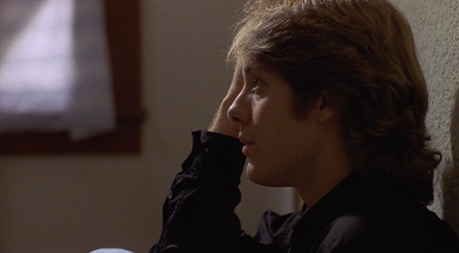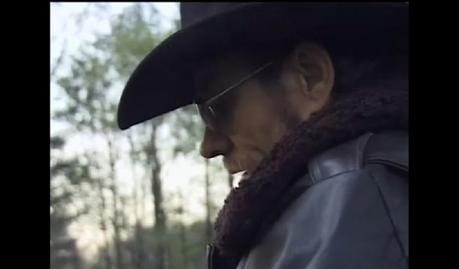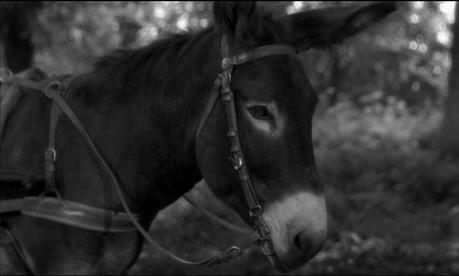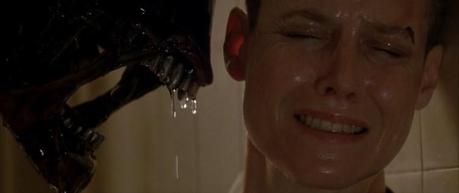There are some films that change your mind, some films that change your day, and some films that change your life. All of us have at least one film that changed our minds, our souls, our direction. These are our choices– we’d love to see your own in the comment section.
-
Britta: sex, lies and videotape (1989)
Dir. Steven Soderbergh
sex, lies and videotape very slowly, very calmly, changed my life. It didn’t revolutionize my view of the world like Videodrome, or make me love my country like Iron Man (no, really), but it did unexpectedly come to represent fundamental ways I wanted to live my life. The story of Graham Dalton (James Spader) returning to his hometown to make amends for his early days, while trying to deal with his impotency, resonates powerfully with anyone who has ever felt lost.
sex, lies and videotape, one of the key films of the American independent movement, came to represent a lot of things to a lot of different people—for many social critics it was viewed as a parable of the detached and disillusioned early 90s; for film historians it heralded the beginning of the Sundance era, where cheap, talk-heavy indie films could have a viable box-office presence; for auteur-subscribers it proclaimed the debut of powerhouse director Steven Soderbergh. All of these things are equally valid, yet to me, sex, lies and videotape presents a much more fundamental truth of the human condition, speaking not to one era, but to our basic fears and emotions. Its resonance is no less powerful today than it was twenty-two years ago.
The quiet, minimal film provoked a powerful response in me, and I found myself weeping inexplicably upon first viewing it. Some time after, I found myself referring to the “one key” lifestyle, taken from Graham’s monolog about acquiring more than one key: “Right now I have one key, everything I own is in the car and I just, I like that. If I get an apartment that’s two keys, if I get a job I might have to open or close, that’s more keys. Buy some stuff, I might get afraid it’s gonna get ripped off, that’s more keys, you know, and I just like having the one key. It’s clean.”
It’s unsurprising that the other characters, still lost in their own fog, find Graham’s statements bewildering. Soderbergh (who writes beautifully and brutally about the film and its process in the book sex, lies and videotape) himself was bemused that early audiences laughed hysterically at the speech.
I find myself quoting Graham on other things as well—“You’re right. I’ve got a lot of problems. But they belong to me,” “I don’t know the first thing about myself, and I’m supposed to be able to explain it to you?”—and while he isn’t a hero per se, he is, bizarrely, a role model. The set-up of the film is a homecoming, a story of redemption, and Graham’s simple, Zen-like dedication to self-improvement and restitution is as admirable as any journey in film. Graham is cautiously optimistic, aware that he has a lot to make up for in his life (as we all do), and unsure exactly how to do it, but markedly determined to. He is moving forward, pressing on through the fears the paralyze him to make peace with others and his own transformed, battered conscience.
sex, lies and videotape is a comforting film, a film of rough times but familiar worlds. The finale is as soothing as the warm rain it brings. Although the film deals with heavy issues—among them the fear of intimacy and the inability to truly access oneself—it never presents them hopelessly. As the screenplay reads, “There is only one key on his key ring, and it is in the ignition.”

sex, lies and videotape (1989)
-
Guy: Southern Comfort (2001)
Dir. Kate Davis
When assigned “This Film Changed My Life,” indecisiveness plagued me. For me, every viable candidate was a documentary. However, I felt that documentaries lent themselves to being life-changing more readily than other films, therefore initially dissuaded from selecting a documentary, I searched for another film. Network, Midnight Cowboy, Rear Window, The Fall, Wall-E, Pink Flamingos, The Constant Gardner, Beetlejuice, Taxi Driver, V for Vendetta, Hirokazu Koreeda’s After Life, 3 Needles, and Idiocracy all came to mind, but in the end it was only the documentary Southern Comfort (2001) that I could actually call life changing.
Winner of the Sundance Grand Jury Prize Documentary Competition, Southern Comfort details the struggle of a transgendered man named Robert Eads, who fights ovarian cancer in southern Georgia. Even though Southern Comfort is a documentary, one wishes it was not. The turmoil that Robert experiences penetrates the soul of the viewer, and begs the audience to fight with him against this injustice. In one of the most heart-wrenching scenes of the film, two of Robert’s friends are being interviewed: the woman recounted an experience that they had while assisting Robert, by detailing a call to a clinic that she once had in which the clinic refused him medical care because it would, “be embarrassing to their other patients.” Every time I watch this scene I cannot help but cry. It was difficult for me not to choose Southern Comfort since this film is one of the reasons I have decided to go to medical school. I had to choose it, because it did, hyperbole-free, change my life.
When faced with such blatant injustice, I could only act.

Southern Comfort (2001)
-
Bob Higgs: Au Hasard Balthazar (1966)
Dir. Robert Bresson
Discussing one film that changed my life in a significant way was surprisingly difficult. Sad though it may seem, cinema has made a number of significant contributions to my life over the years, and a number of films have altered my life in one way or the other. How do I narrow the many possible choices down to just one single, solitary picture?
After nearly a full day of deliberation, I noticed that there was one title that stuck in my head the entire time: Robert Bresson’s 1966 classic, Au hasard Balthazar. And I know that I’m not the only one who has been significantly impacted by Balthazar; acclaimed director Jean-Luc Godard once referred to the film as, “the world in an hour and a half.”
Au Hasard Balthazar follow the lives of Marie, a farm girl, and her donkey, Balthazar. While Marie is still a child, the pair ends up splitting, yet they seem to lead lives parallel to one another – they are frequently abused, wrongfully used, and almost always victimized. Ultimately, Balthazar leads a difficult life and eventually dies.
If it sounds like a simple story, that’s because it is. How could such a basic, almost naïve story move so many people? It’s all in the meaning.
Let me say right up front that I am not a religious person by any means. In fact, I’m nearly the opposite. Robert Bresson, on the other hand, was renowned for his spirituality and use of religious imagery. Balthazar, the beloved, completely downtrodden ass, is frequently cited as an allegory for Jesus Christ. His entire life was dedicated to selfless and loving service to mankind. In exchange, he was relentlessly persecuted and eventually killed.
Of course, being that I’m not exactly “spiritual,” that interpretation doesn’t hold a lot of meaning to me, though it will to others. Rather, I find significance in the parallel existences of Balthazar and Marie. Marie is a person; Balthazar is a donkey. Why should their lives parallel each other? The overall idea of the film seems to say that the life of a human is really no different than that of a donkey. The selflessness of humans and donkeys are both exploited for personal gain. Humans and donkeys spend their lives serving undeserving and cold-hearted individuals. And then, eventually, they die.
This sounds pessimistic, and every stable-minded person who reads this article will be curious as to why I hail this film as life-changing, especially considering its final frames, wherein Balthazar falls over and dies alone in a field, surrounded by sheep (another hint at the Biblical nature of the film) who slowly abandon his dead body. The answer to this lies back in the Jesus allegory.
Jesus died, obviously. But, according to the will of God, he rose from the dead once again, and according to the Bible, will come back again (I hear he won’t be as nice this time around, but I digress). This gives his followers a sense of hope for humanity: its greatest individual is not gone forever.
Am I saying that Balthazar will eventually rise from the dead? No, not exactly. But Balthazar will live on in those who knew him, and especially those who watch the film. The spirit of his kindness, even in the face of the cruelest adversity, and his quiet acceptance, even in his untimely death, stick with me to this very day.
We should all understand Balthazar’s never-ending predicament: service and love to those we have every right to ignore and hate. It will hurt us, and it may even be fruitless, and we all will die eventually, yet somehow it all seems worth it.
If I could offer one closing statement to clarify: think of the sheep.

Au Hasard Balthazar (1966)
-
Garrett: Alien 3
Dir. David Fincher
A lot of people don’t like David Fincher’s Alien 3. Fincher himself would prefer his name stricken from the record. However, there is something unique about his attempt. He filmed the alien as an animal rather than a monster. He shot it in a loving, respectful manner positioning viewers in the perspective of the alien whenever possible and cut down on the monster movie fashion where there is something to defeat and once defeated all will be well. The alien is not alien. It is something with which we coexist; a part of experience that cannot be sidestepped or defeated.
Spiritual not only in narrative but in presentation when combined with a very abstract, operatic score by Elliot Goldenthal, the film is about revelation among us. We see the alien on an equal plane as an animal acting on instincts trying to survive in the surrounding world just as the humans do. Consequently, although the humans work to destroy the creature as in the other films, it is under a different light that does not glamorize the activity, but attempts to probe and analyze the motivations behind it.
This provided new ways of thinking for me that led to certain ancestors of expression and began ascribing new ideas to the palette I wished to play around. [ED. ???] It’s unimportant whether the film is good or bad. As the film posits, these qualities always coexist. The film’s weight is in its impact and ability to transform us as we go back to our daily existence and let it be for a while, altering the way we see the world that surrounds us.

Alien 3 (1992)
-

